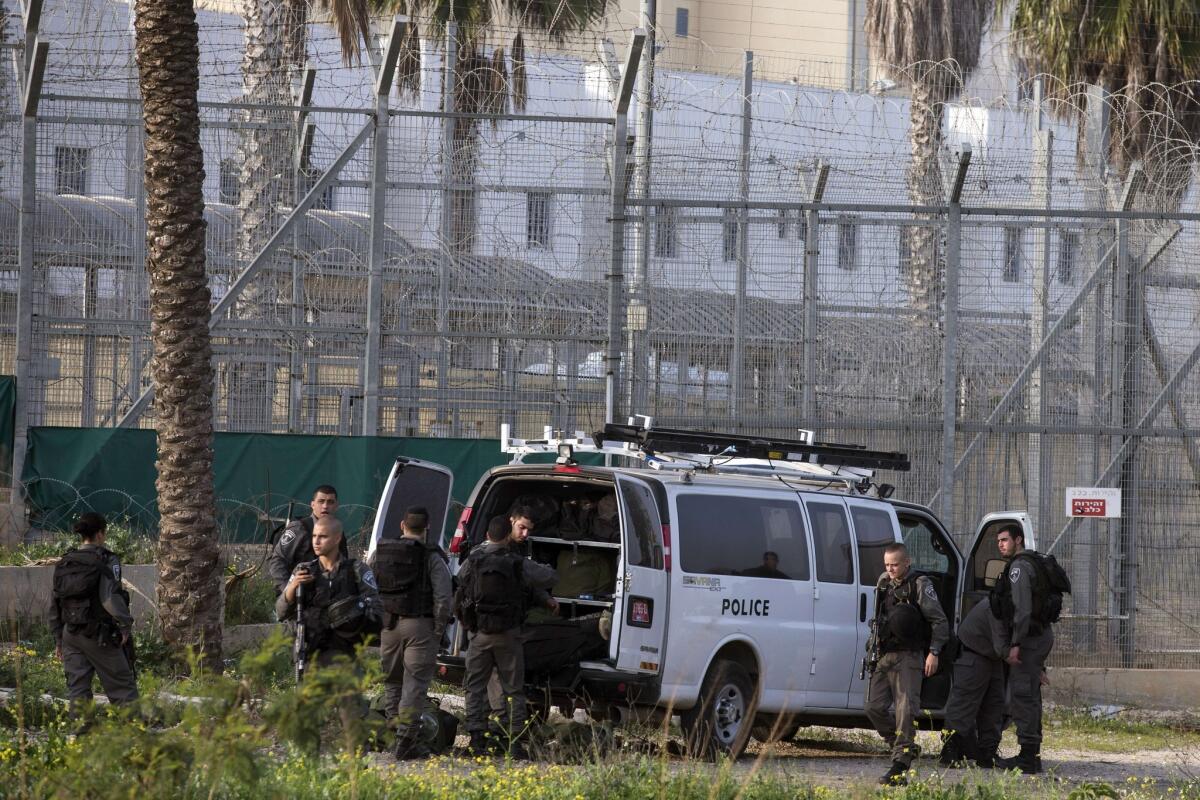U.S.-born killer shoots guards, is slain in Israeli prison

JERUSALEM -- A U.S.-born inmate in an Israeli prison shot and wounded three guards Sunday before being killed by a SWAT team that responded to the attack.
Israeli media identified the shooter as Samuel Sheinbein, convicted of the killing of 19-year-old Alfredo Enrique Tello Jr. in Maryland in September 1997. Sheinbein was 17 at the time of the killing.
According to media reports, Sheinbein made a bathroom stop while being transferred from one cell to another in the Rimonim prison in central Israel, a maximum security jail. He reportedly pulled out a handgun and shot three prison guards escorting him, seriously wounding one of them.
A SWAT team was called to the site to negotiate with the shooter, who was holed up in the bathroom with no hostages but still armed. An hour into the standoff he fired at special forces taking up positions around the cell, according to the reports. Sheinbein was mortally wounded when they fired back and died despite medical attention.
Prison authorities will investigate the incident, including how the inmate got a weapon. One senior official, Eli Gabizon, told media the handgun the prisoner fired was not grabbed from one of the guards.
Considered highly dangerous, Sheinbein was denied furloughs from prison until the Supreme Court ruled on his petition a year ago and instructed the prison service to allow leaves.
During a recent weekend outside the prison, Israeli media reported, Sheinbein was caught by police after trying to steal a handgun from an Israeli citizen who was selling one.
Sheinbein fled the U.S. after the 1997 slaying for Israel, where he was eligible for nationality due to his father’s Israeli citizenship. Israel fought high-level pressure from American authorities, including from the State Department, to extradite Sheinbein. He was ultimately tried and convicted for the murder in Israel, and sentenced to 24 years in prison.
His alleged accomplice, classmate Aaron Needle, hanged himself in 1998 while in police custody, shortly before his trial was set to begin.
Sobelman is a special correspondent.
More to Read
Start your day right
Sign up for Essential California for news, features and recommendations from the L.A. Times and beyond in your inbox six days a week.
You may occasionally receive promotional content from the Los Angeles Times.






